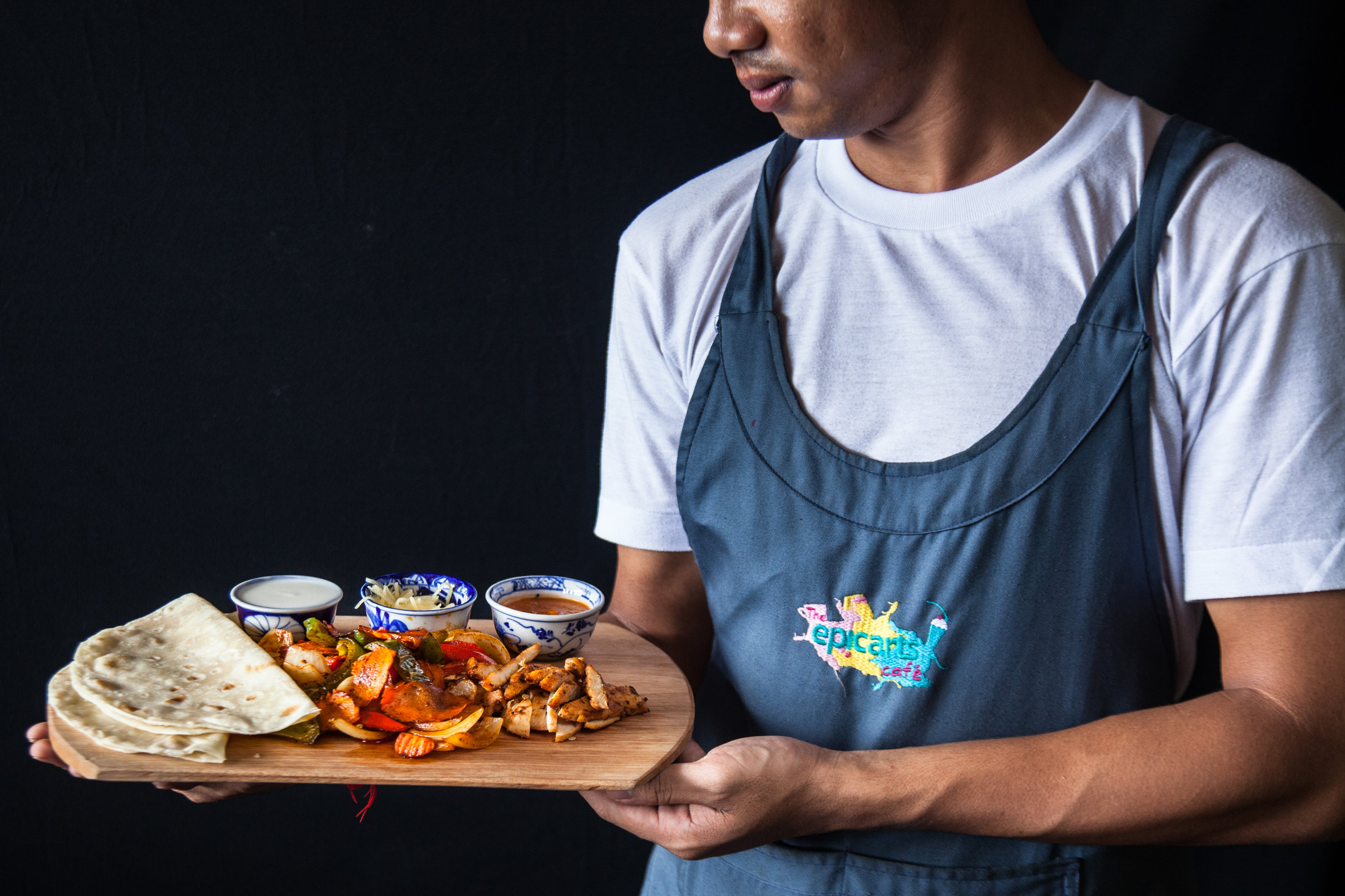Photo by Charlotte Hodges
People with disabilities, no matter where they live in the world, face a multitude of challenges. In Cambodia, for instance, a lack of educational infrastructure, combined with the stigma associated with disability, often leads to the complete marginalization of disabled individuals within society.
Photo by Charlotte Hodges
Epic Arts is an organization intent on changing this.
They run a café in Kampot, Cambodia staffed primarily by people with disabilities who although capable, might not be seen as employable elsewhere. Proceeds from the café help to fund a special education program for those with learning disabilities, and an inclusive arts program where those with physical disabilities receive training in the arts.
Photos by Charlotte Hodges
“In our education programs we work with young people with learning disabilities because the education system isn’t set up for them, so there is nowhere for a child with Down syndrome to go to school,” said Hayley Holden, project manager at Epic Arts.
Holden also stresses how social stigma itself is a big hurdle for those with disabilities.“You’re sort of seen, if you have a disability, as not being able to work, not being able to learn, not being able to have a family. You’re seen as if there is not much point to you,” said Holden.
Photo by Charlotte Hodges
The inclusive arts program is a two-year course intended to prepare students with disabilities for a career in the arts, but its intent goes much deeper.
“It’s a transformative course because these young people, usually between the age of 19 and 24, if they have a disability, they’ve usually been ostracized from their community. Often they come to us quite shy, they don’t believe in themselves. It’s really a two year course that focuses on the arts, but it’s much more about them learning about themselves and working out that they can do things. They can dance, they can sing, they can write a song,” Holden explained.
Photo by Charlotte Hodges
Once they have completed their arts training, many of the students go on to be employed by Epic Arts, joining theatre productions that tour both nationally and internationally. This not only provides the performers with an income, but also spreads the message that those with disabilities are capable of doing great things.
Photo by Charlotte Hodges
Photographer Charlotte Hodges recently visited Kampot to document the work that Epic Arts is doing. While there, she saw some of the performances for herself. “A whole team of disabled people coming together was something just unimaginably impactful to me,” said Hodges. “It really blew my mind to see some of the performances they were able to put together.”
Photo by Charlotte Hodges
One of the performances was called Buffalo Boy. The story is based on the life of one of the Epic Arts students, who has cerebral palsy. The play was about not only the personal transformation of the student, but also of his family and community as they began to understand his condition.
Hodges also photographed the staff at the café, many of whom are deaf, and serve patrons using a written system where you check off what you want to eat or drink on an order form. Since Hodges doesn’t speak Khmer, the local language, she felt that the deaf café staff were actually the people with whom she had the easiest time communicating, because of their use of body language.
Photos by Charlotte Hodges
Holden notes that people’s perceptions of people with disabilities are already starting to change, at least in Kampot. She notes that the staff and performers, armed with their newfound confidence, are quite outgoing and charismatic. They are now fixtures in town and can be seen on the streets using sign language or going around in their wheelchairs interacting and integrating with other residents.
Photos by Charlotte Hodges
Both Holden and Hodges hope that the photos ultimately show the subjects as people.“My biggest hope would be that I really portrayed everyone in the way that they would want to be portrayed,” said Hodges. “A lot of my editing process while I was there was showing the photos to my subjects and making sure what I was getting was the way that they wanted to see themselves as well.”
Photo by Charlotte Hodges
“I hope that people see that they are just humans,” said Holden. “Just because they have a disability doesn’t mean they are any different than anybody else.”
Click here for more information on Epic Arts, and how you can support their work.
This article was first published in PWB Magazine #10, on sale now.

























